VR in educational context
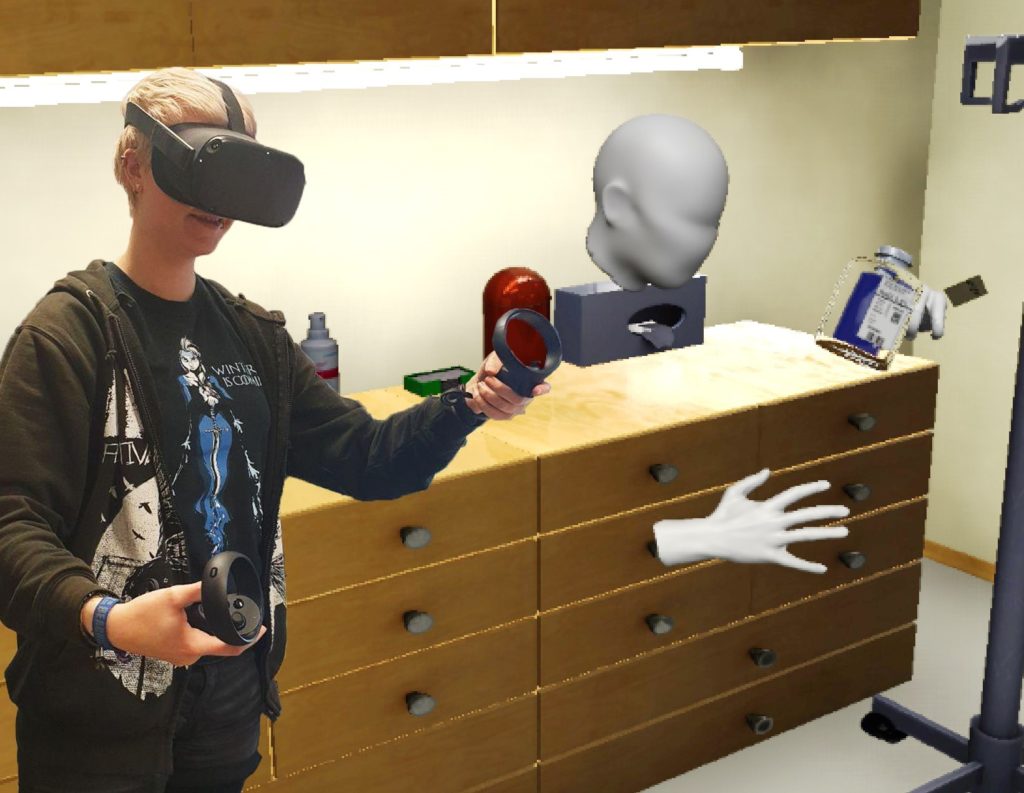
The project DiViFaG (Digitale und Virtuell unterstützte Fallarbeit in den Gesundheitsberufen) is going to make use of the benefits that VR training simulations offer in the context of medical and health care education. In this field, students often report that they feel a lack of sufficient training in communication and practical skills. Especially the training of cooperation with other professions (e.g. medicine and nursing) is rarely included in the regular education. Therefore, multiple training scenarios will be designed by all project partners which will allow students an autonomous and interprofessional practice of those skills as well as to enable teachers to adjust the designed scenarios to the individual needs and directly access their students’ results. To make this level of controllability easier accessible, the VR applications will be integrated into existing learning management systems (LMS).
The implemented scenarios will be evaluated from the perspective of both teachers and students. It will be analyzed if both groups benefit from the use of VR training simulations and if the tools are feasible to use for exams
VR scenarios developed during the project
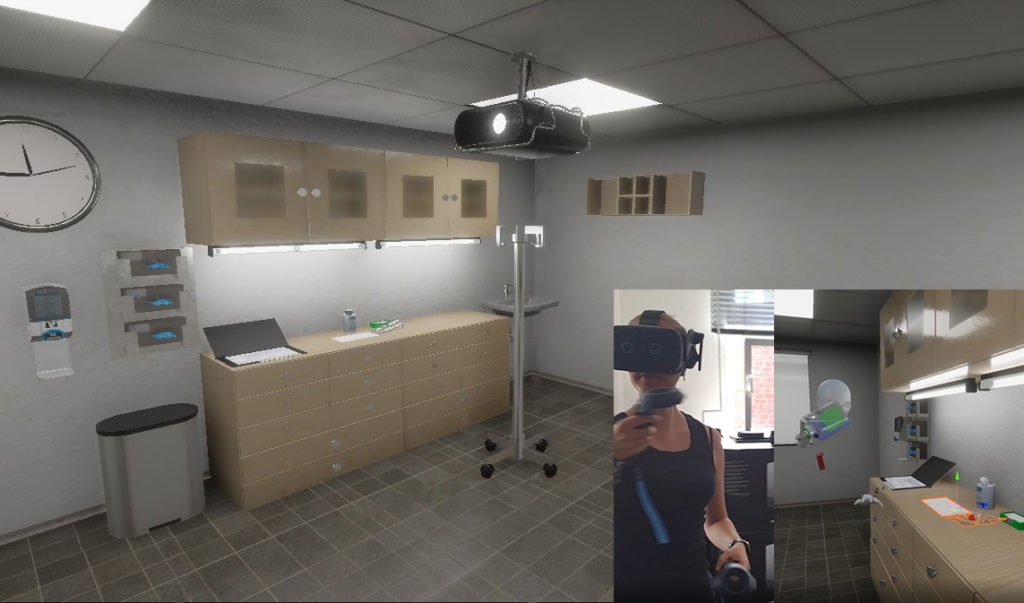
Infusion Preparation
This scenario teaches the students the process of preparing an infusion bottle. Additionally, behaviour in a clinical environment is trained. Students learn to keep the environment disinfected and prevent contamination on their way to a ready-to-use infusion.
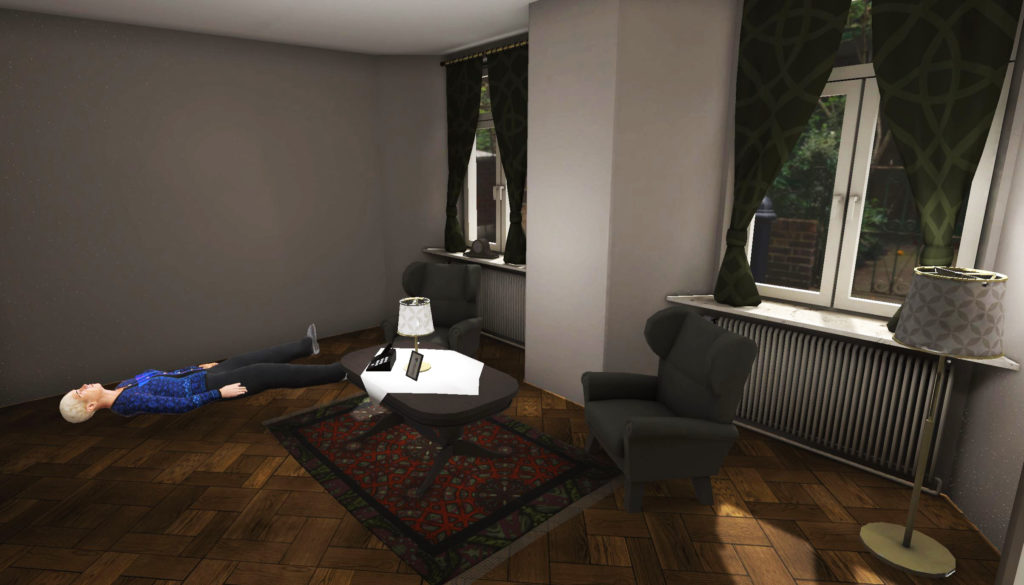
Reanimation
In this scenario students learn the process of giving basic life support. The training also includes how to work in a Team. An NPC (non-player-character) will join the student to give support during the reanimation process.
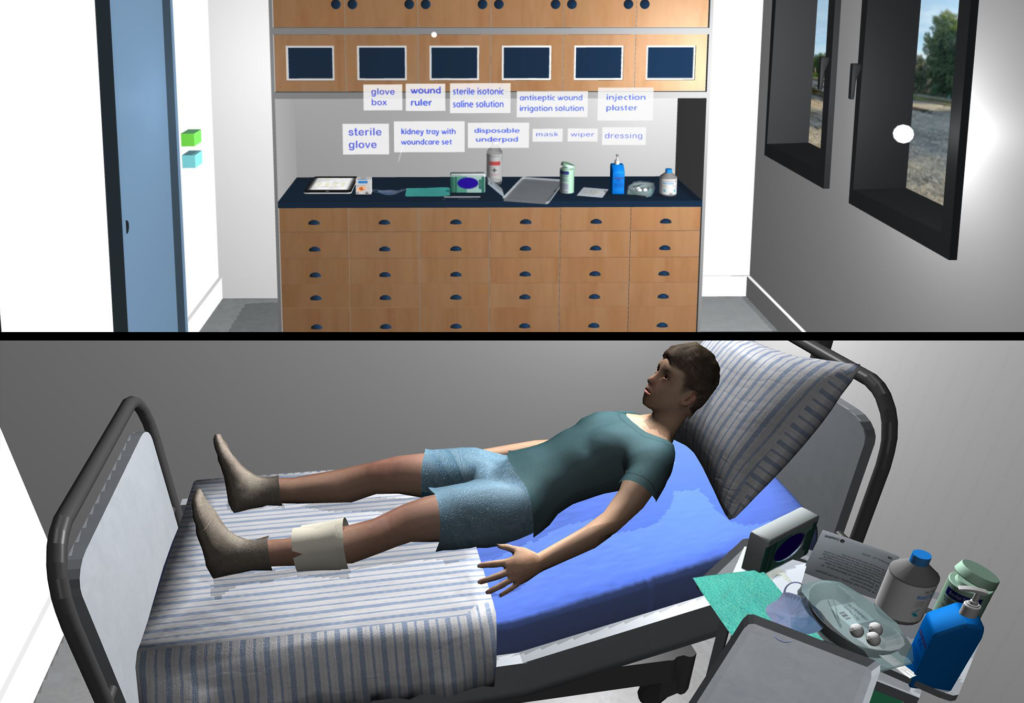
Wound Treatment
Besides learning the process of correct wound treatment, the students also learn how to properly approach a patient. This scenario is not in their native language, so they additionally benefit from second language learning in the context of wound treatment.
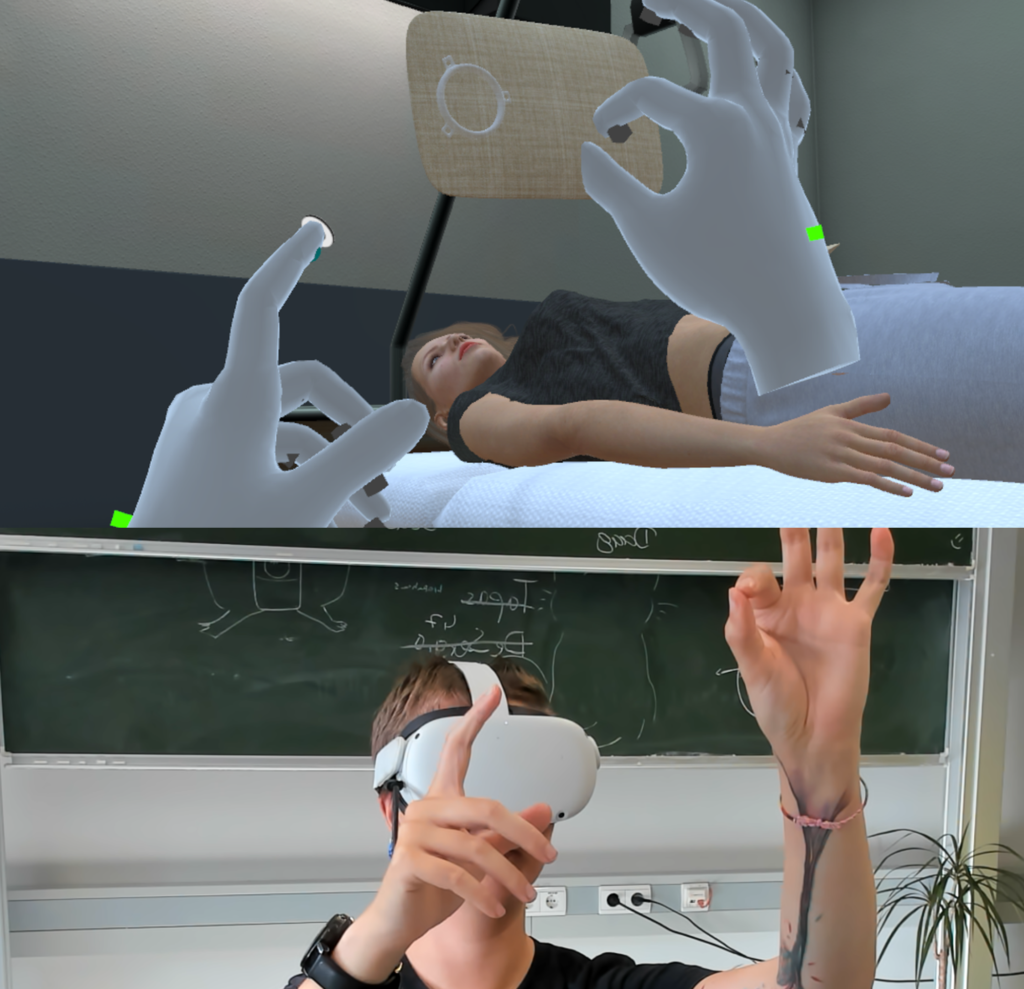
Colostoma Care
Since the correct care of a colostoma comes with a lot of delicate interactions with small objects, this scenario can be controlled either with the VR controllers or the own hands, made possible via the hand tracking feature of the Meta Quest 2. Using the hands can feel more natural and make performing those small interactions a bit easier.
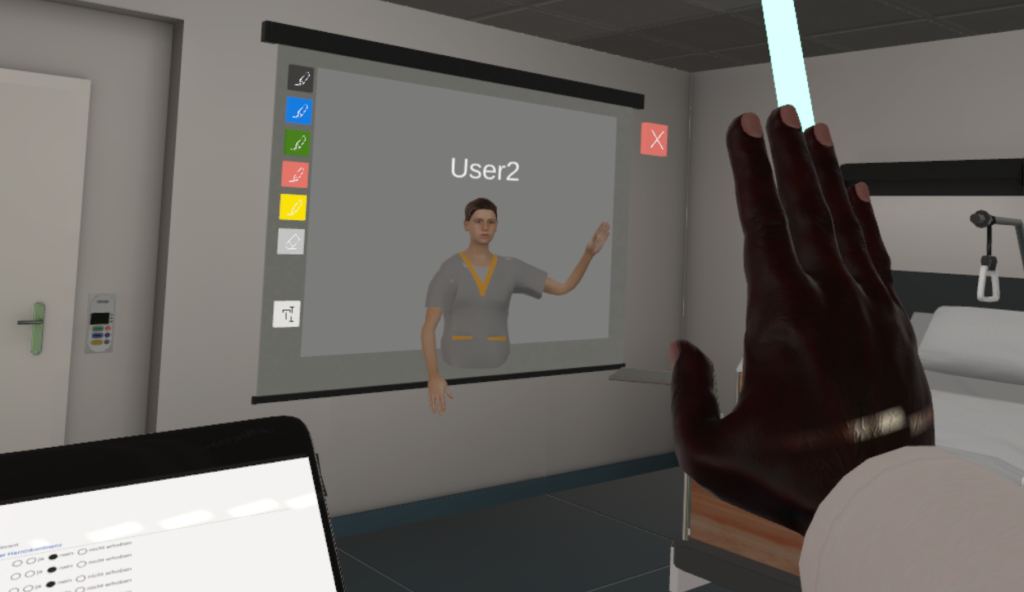
Interdisciplinary Multiplayer
To support the interdisciplinary learning of nursing and medicine students, this scenario enables the students to choose their role in form of a virtual avatar and then meet in a virtual patient room to discuss a certain patient case or condition.
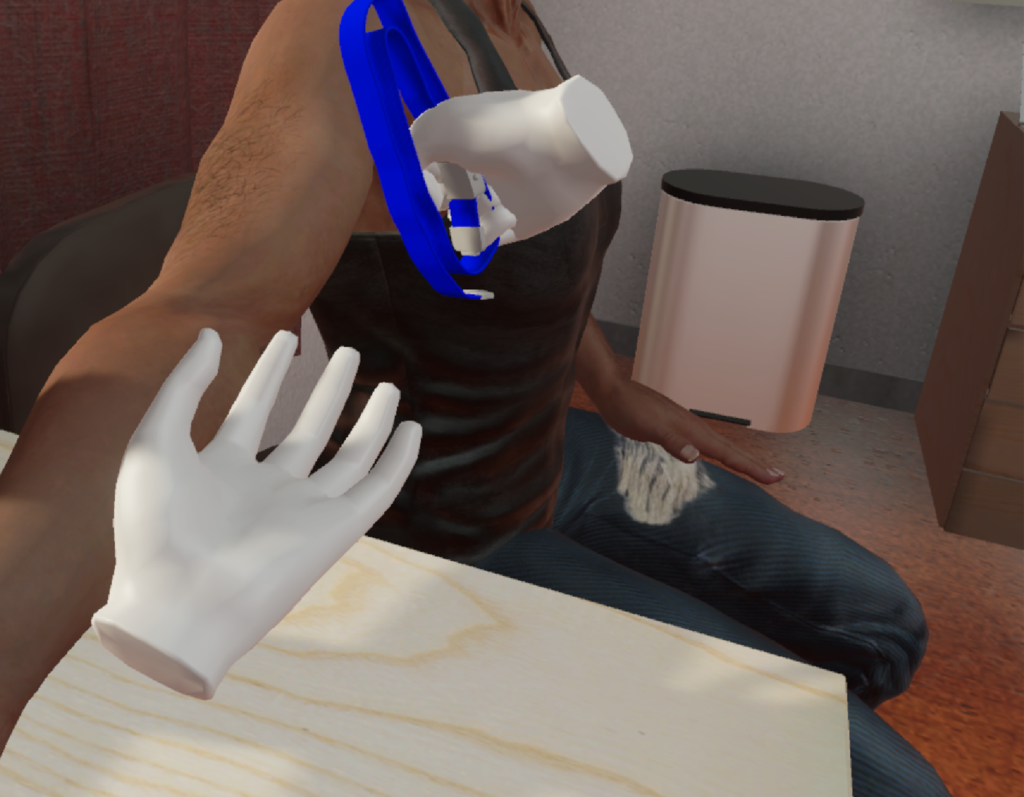
Blood Collection
In this scenario, students will learn how to prepare their facility for blood collection. You need to gather all the relevant materials and prepare the patient. After that, they can watch a video that further explains the process of puncturing a vein and drawing blood.
Working Paper
- Digitale und virtuell unterstützte fallbasierte Lehr-/Lernszenarien in den Gesundheitsberufen – Rahmenbedingungen, Anforderungen und Bedarfe an die hochschulische Ausbildung [Link]
- Digitale und virtuell unterstützte fallbasierte Lehr-/Lernszenarien in den Gesundheitsberufen – theoretische und konzeptuelle Grundlagen zur Entwicklung fallbasierter VR-Szenarien am Beispiel Reanimation [Link]
- Virtuell unterstützte, fallbasierte Lehr-Lernszenarien für die hochschulische Ausbildung in den Gesundheitsberufen – Rahmenbedingungen, Anforderungen und Bedarfe [Link]
Team Emden
Responsible Investigators:

Prof. Dr. Thies Pfeiffer
Email: thies.pfeiffer@hs-emden-leer.de

Carolin Hainke, M.Sc.
Email: carolin.hainke@hs-emden-leer.de
Research Assistants:
Dennis Jongebloed
Ruwim Merling
Maresa Schulte
Project Partners
